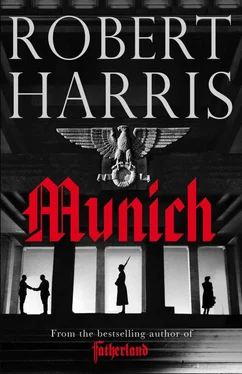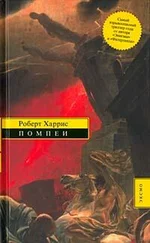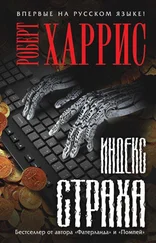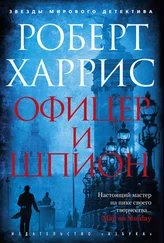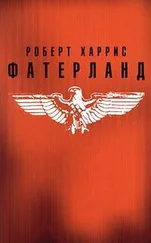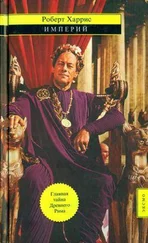The BBC engineer asked them all to sit at the other end of the room. Outside over the garden and Horse Guards Parade darkness had fallen.
Big Ben chimed eight o’clock.
The announcer’s voice came over the loudspeaker. ‘This is London. In a moment, you will hear the Prime Minister, the Right Honourable Neville Chamberlain, speaking from Number Ten Downing Street. His speech will be heard all over the Empire, throughout the continent of America, and in a large number of foreign countries. Mr Chamberlain.’
Beside the microphone, a green light glowed. The Prime Minister adjusted his cuffs and picked up his speech.
‘ I want to say a few words to you, men and women of Britain and the Empire, and perhaps to others as well... ’
He enunciated each syllable carefully. His tone was euphonious, melancholy; as inspiring as a dirge.
‘ How horrible, fantastic, incredible it is that we should be digging trenches and trying on gas masks here because of a quarrel in a faraway country between people of whom we know nothing. It seems still more impossible that a quarrel which has already been settled in principle should be the subject of war. I can well understand the reasons why the Czech Government have felt unable to accept the terms which have been put before them in the German memorandum... ’
Legat glanced across the table at Cadogan. He was nodding in agreement.
‘ Yet I believe after my talks with Herr Hitler that, if only time were allowed, it ought to be possible for the arrangements for transferring the territory that the Czech Government has agreed to give to Germany to be settled by agreement under conditions which would assure fair treatment to the population concerned. After my visits to Germany I have realised vividly how Herr Hitler feels that he must champion other Germans. He told me privately, and last night he repeated publicly, that after this Sudeten German question is settled, that is the end of Germany’s territorial claims in Europe... ’
Cadogan winced at Halifax but the Foreign Secretary stared ahead. His long, pale, pious, crafty face was motionless. In the Foreign Office they called him ‘the Holy Fox’.
‘ I shall not give up the hope of a peaceful solution, or abandon my efforts for peace, as long as any chance for peace remains. I would not hesitate to pay even a third visit to Germany if I thought it would do any good... ’
Now it was Wilson who was nodding.
‘ Meanwhile there are certain things we can and shall do at home. Volunteers are still wanted for air-raid precautions, for fire brigade and police services, and for the Territorial units. Do not be alarmed if you hear of men being called up to man the anti-aircraft defences or ships. These are only precautionary measures such as a government must take in times like this... ’
Legat waited for the line announcing the mobilisation of the Navy. It did not come. The Prime Minister had cut it. Instead he had inserted a new paragraph.
‘ However much we may sympathise with a small nation confronted by a big and powerful neighbour, we cannot in all circumstances undertake to involve the whole British Empire in war simply on her account. If we have to fight it must be on larger issues than that...
‘If I were convinced that any nation had made up its mind to dominate the world by fear of its force, I should feel that it must be resisted. Under such a domination, life for people who believe in liberty would not be worth living. But war is a fearful thing, and we must be very clear, before we embark on it, that it is really the great issues that are at stake, and that the call to risk everything in their defence, when all the consequences are weighed, is irresistible.
‘ For the present I ask you to await as calmly as you can the events of the next few days. As long as war has not begun, there is always hope that it may be prevented, and you know that I am going to work for peace to the last moment. Goodnight. ’
The green light went out.
Chamberlain exhaled a long breath and slumped back in his chair.
Wilson was the first on his feet. He walked towards the Prime Minister, softly applauding. ‘That really was superb, if I may say so. Not one stumble or hesitation.’
Legat had never seen the Prime Minister’s grin before. It bared a neat row of yellowish-grey teeth. He looked almost boyish in his pleasure at being praised. ‘Was it really all right?’
Halifax said, ‘The tone was perfect, Prime Minister.’
‘Thank you, Edward. Thank you, everyone.’ He included Legat along with the BBC engineers in this general benediction. ‘I always find the trick, when I’m speaking on the wireless, is to try to imagine I’m talking just to one person, sitting in their armchair — intimately, as a friend. That was harder to do tonight, of course, knowing I was also having to talk to a second person, sitting in the shadows of the room.’ He took a sip of water. ‘Herr Hitler.’
The civil servant in charge of the German Foreign Ministry, State Secretary Ernst von Weizsäcker, had announced that he wished to have a German translation of the Prime Minister’s speech in his hands within thirty minutes of its delivery. He had entrusted the responsibility to Paul von Hartmann.
High up in the Radio Monitoring Room in the eaves of the Wilhelmstrasse building, beneath the huge array of radio aerials that sprouted from the roof, Hartmann had duly assembled a three-woman team. First, a stenographer took down Chamberlain’s words in English (no easy task, since by the time the BBC’s signal reached Berlin it had lost much of its strength and the Prime Minister’s ethereal voice, fading in and out of the clouds of static, was often difficult to make out). As soon as each page of shorthand was filled, a second secretary typed up the notes in English, triple-spaced. Hartmann wrote down his translation beneath the lines of English text and passed the pages one by one to a third secretary, who typed up the finished German version.
Wie schrecklich, fantastisch, unglaublich ist es...
His pen moved rapidly over the cheap paper, the brown ink bleeding slightly into the coarse weave.
Ten minutes after Chamberlain had finished speaking the job was done.
The typist tore the last page from her machine. Hartmann grabbed it, slipped the speech into a cardboard folder, kissed the top of her head, and strode out of the room, pursued by relieved laughter. The instant he was in the corridor his smile disappeared. As he walked towards Weizsäcker’s office he flicked back and forth between the pages of the speech with increasing dismay. The tone was far too wary and conciliatory — thin stuff, mere audio-ectoplasm. Where was the threat, the ultimatum? Why hadn’t Chamberlain repeated in public that evening what his emissary had told Hitler in private that morning — that if France went to the aid of Czechoslovakia, Britain would support France?
He descended the stairs to the ground floor, knocked on the door of Weizsäcker’s outer office and went straight in without waiting for a reply. The room was large and high-ceilinged, overlooking the park that ran along the back of the Ministry. It was lit by a vast and elaborate chandelier. In the darkened windows, beyond the reflection of the electric light bulbs, it was still just possible to make out the shapes of the trees against the evening sky. The junior secretaries had all gone home, their typewriters shrouded for the night like the cages of sleeping birds. Seated alone in the office, at her desk beside the central window, was Weizsäcker’s senior secretary. She had a cigarette between her scarlet lips and a letter in either hand and was looking from one document to the other, frowning.
Читать дальше
